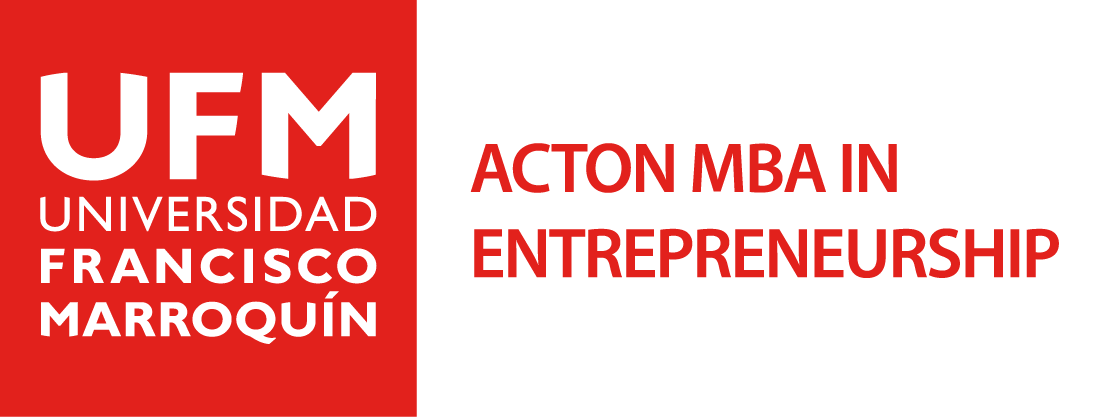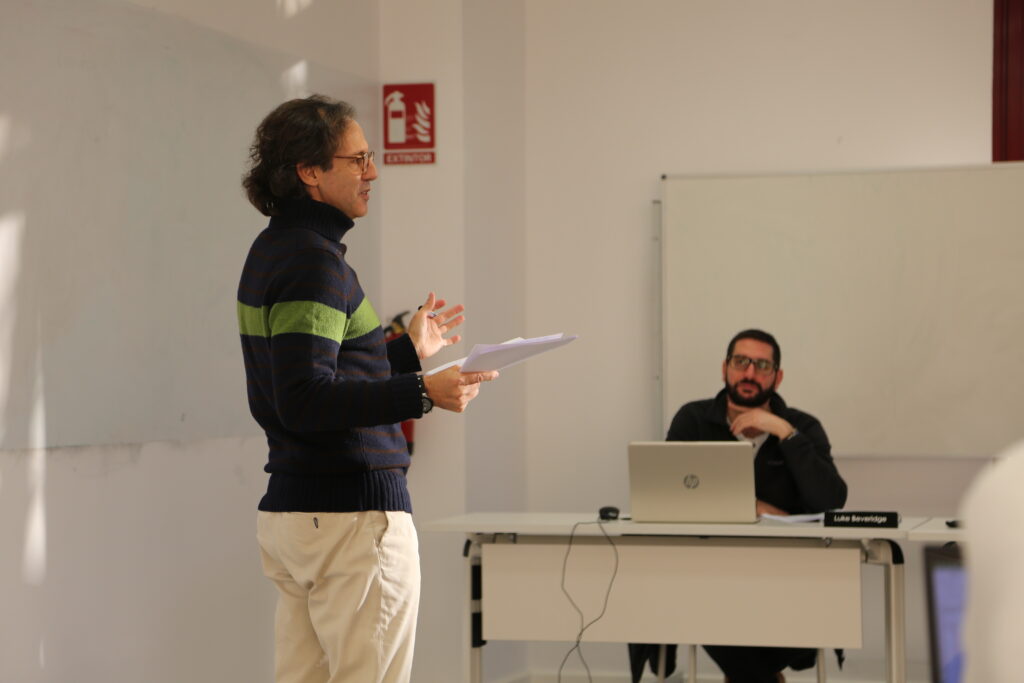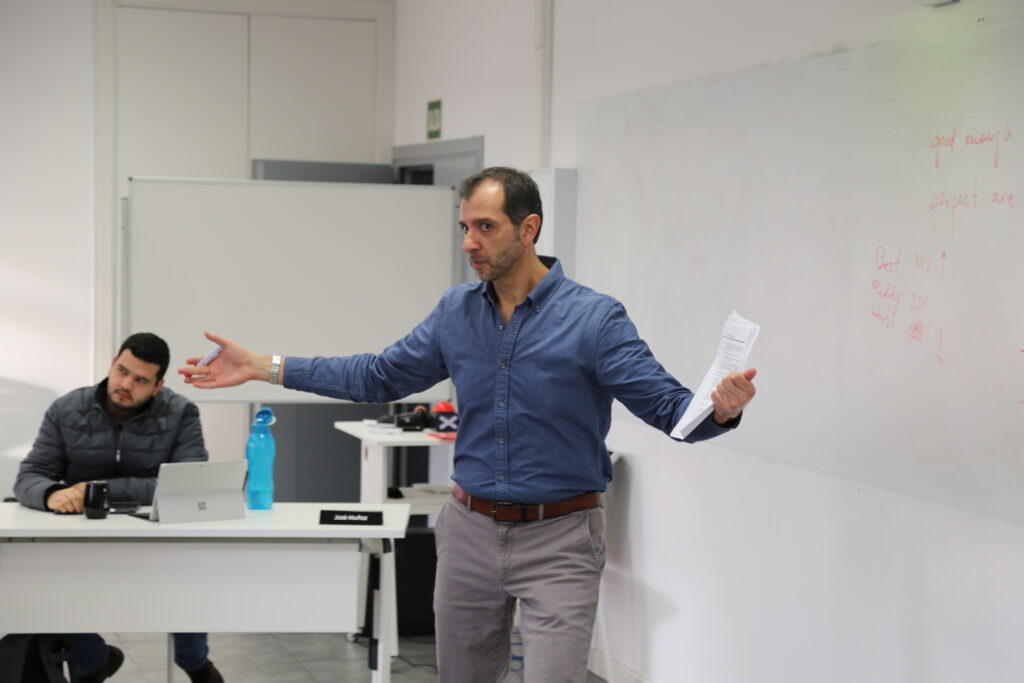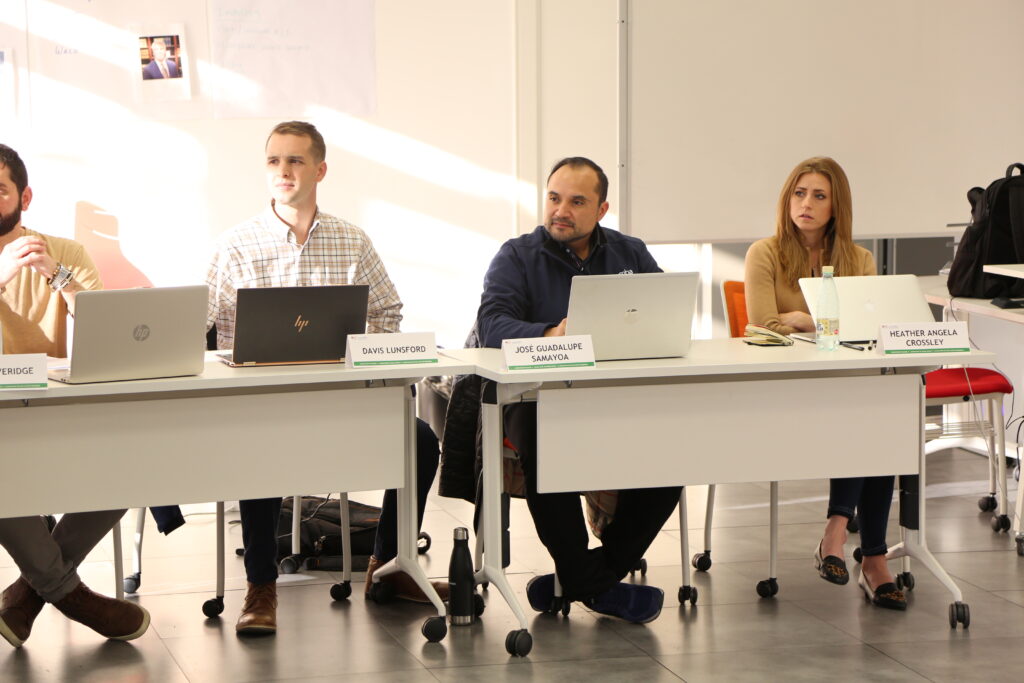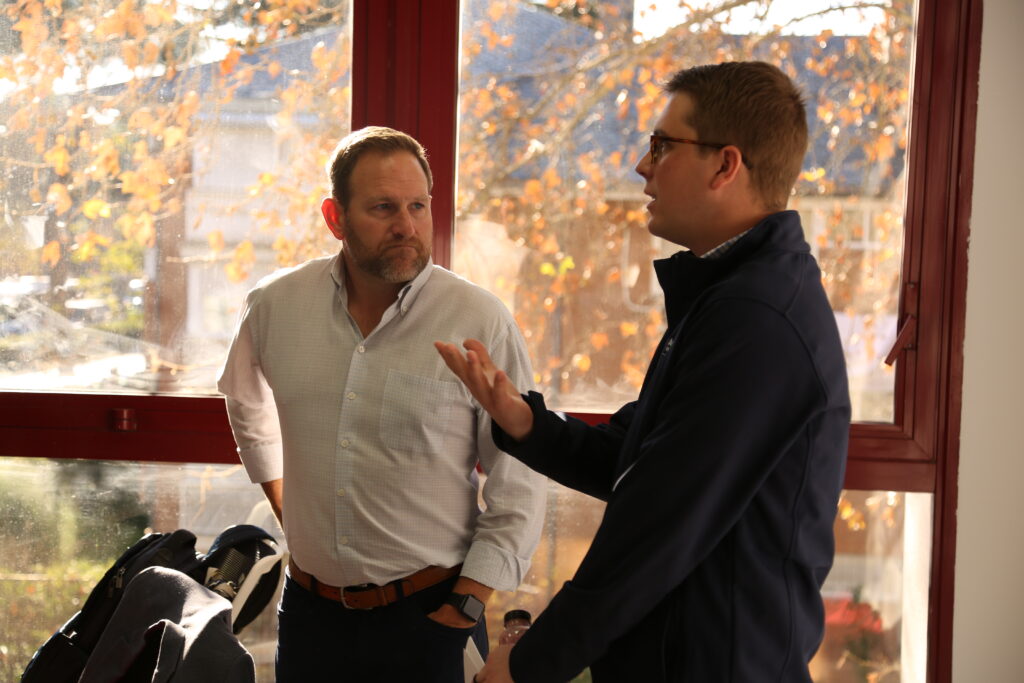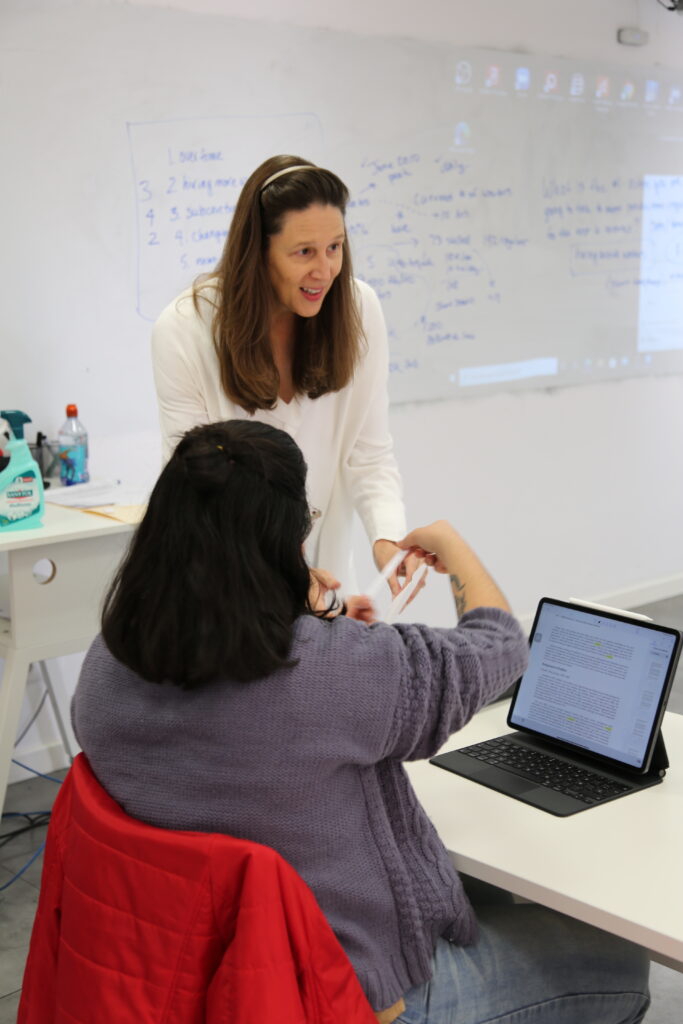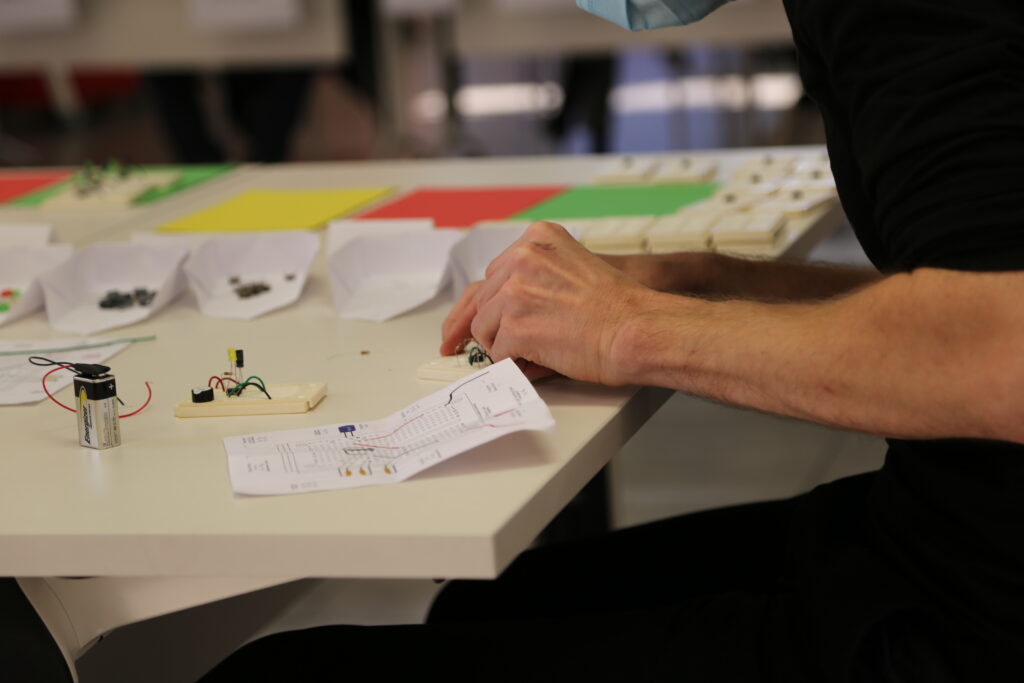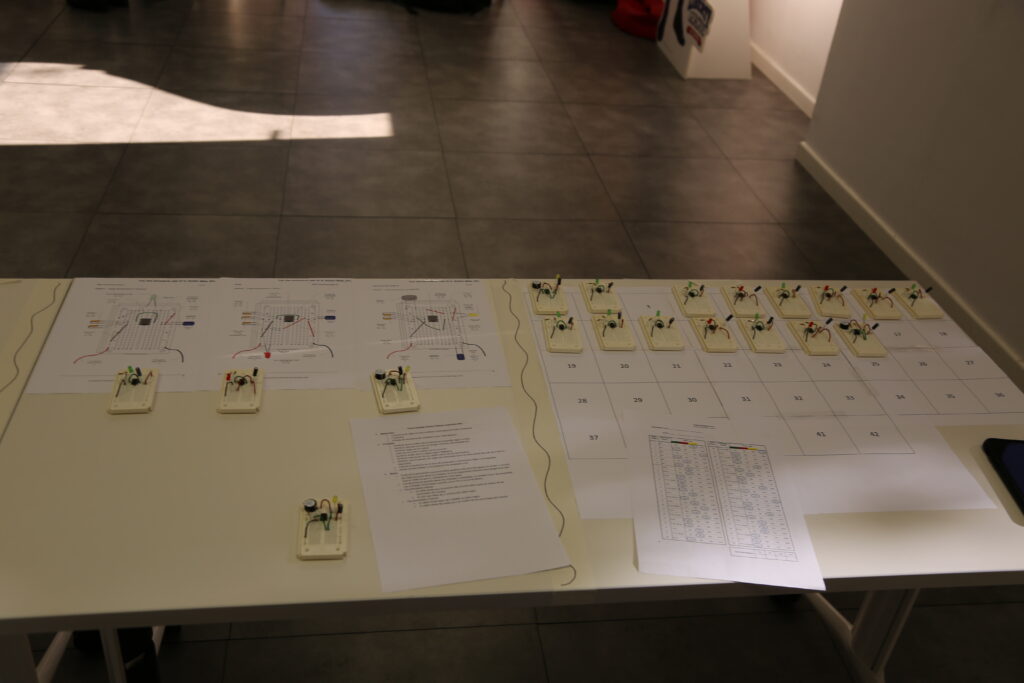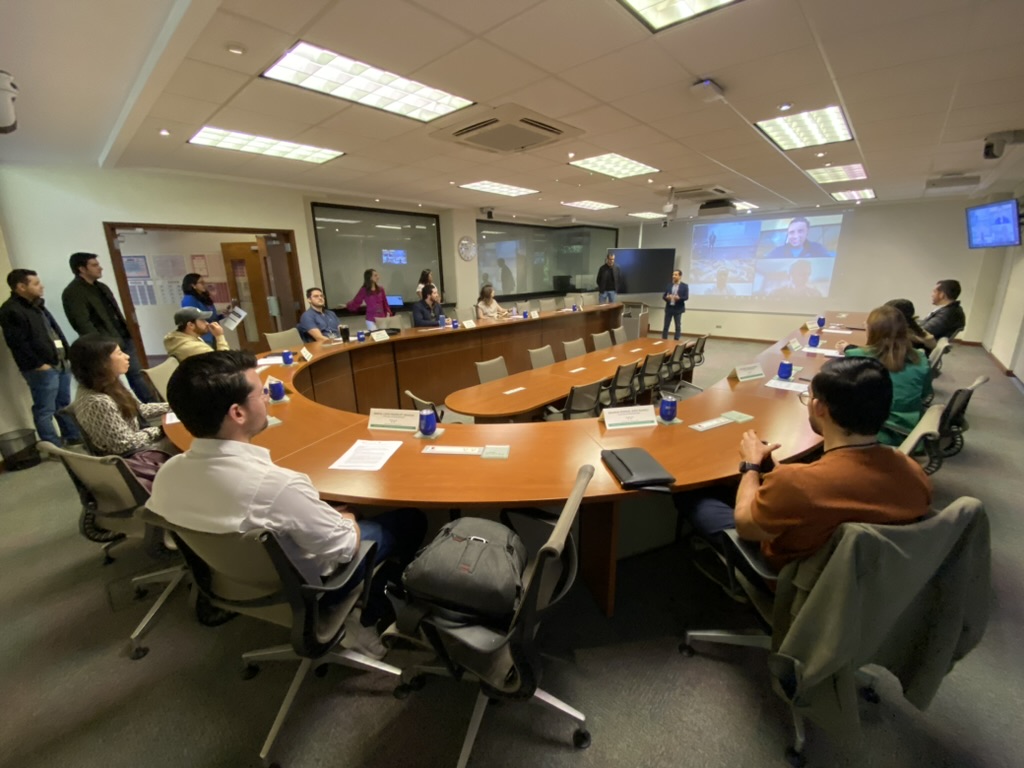Alumni Voices: Going into Finance after Acton
OCTOBER 1, 2014
“The most valuable experiences were the times I was selected to lead the case study discussions.”
When it comes to teaching finance, Acton stands apart from every other MBA school out there. After they develop a base knowledge of unit economics and how to drive the success of every single business out there, our students dig into the financial concepts behind the formulas.
They spend significant time in challenging Socratic case discussions about finance, financial reporting, and valuation. They debate the appropriate discount to apply to a pro forma and the right valuation to give a company. This time spent in the shoes of the entrepreneur means that when they graduate, they have developed a deep understanding of how finance truly works. They don’t just know the tools of the industry; they understand what’s behind the numbers that drive them.
Many of our graduates continue to apply their skills within the financial industry, taking or developing jobs with investors and lenders. We recently caught up with three Acton alumni who have pursued careers in finance, and they shared some of their experiences in the Acton classroom and beyond.
The Alumni
Michael Hanson (’07) is a founding member of Parkman Whaling LLC, a boutique investment and merchant bank in Houston focused solely on the energy industry. He joined immediately after graduating from Acton, and as the firm was being founded. Michael helps oil, gas, and other energy-related firms buy and sell assets, raise capital, start or restructure businesses, or make strategic corporate decisions. He also helps to source, evaluate, execute, and monitor Parkman Whaling’s principal investments in the energy industry. He holds a bachelor of fine arts in Theater with a specialization in Acting from Southern Methodist University.
Coy Morgan (’09) is the acquisitions manager for Propel Financial Services in San Antonio, Texas, which provides property tax financing options. The firm was acquired last year by Encore Capital Group, a publicly traded consumer debt purchaser. Coy manages the competitor acquisition processes in Texas and helps the company expand nationally by purchasing tax lien certificates. He holds a JD from the University of Oklahoma College of Law and a bachelor of business administration in Entrepreneurship from the University of Oklahoma.
Mitch Johnson (’11) is cofounder and CEO of Keller Capital. The firm is the private investment arm of Gary Keller who founded Keller Williams Realty International. The company was recently named the largest residential real estate company in North America. An active investor in businesses at all stages of growth in Austin and across the country, Keller Capital has a substantial real estate portfolio and commercial management division. Mitch holds a bachelor of science from Boston University.
On choosing Acton…
Mitch
My mentor and business partner Gary Keller introduced me to Acton. He and I were both very impressed with the curriculum and Jeff Sandefer’s passion for developing a better class of entrepreneur. The style of teaching and direct access to so many successful entrepreneurs meant I was going to get the most out of each class.
Another reason the program was attractive was the timeframe. I couldn’t afford to leave the work force and spend two years trying to earn an MBA. I needed to get to work as soon as possible. One year was the perfect amount of time for me to absorb all the information and not feel as though I was wasting time in a classroom.
Michael
Acton appealed to me because it valued my time by compressing a two-year education into nine months, focused intently on developing practical skills for the entrepreneur, and pushed its applicants to consider a search for a calling above wealth and prestige. With a background in the arts, I entered Acton with few preconceived notions on what exactly I wanted to pursue in a career, but finance was certainly not at the top of my list!
Coy
Acton was the only MBA program I applied to because of its focus on entrepreneurship, the fact that all teachers are entrepreneurs, and because of the Life of Meaning course. I did not anticipate a career in finance when I originally applied to Acton. It was only after identifying with the Asset Fox that I began to consider niche financial industries.
On their greatest challenges in the Acton classroom . . .
Michael
Ironically, my greatest challenge was my lack of financial knowledge. Prior to Acton, I was essentially financially illiterate. I could balance a checkbook, but that was about it. I had no appreciation for accounting principles, how the three financial statements related to one another (or even what they were), or why debt costs less than equity. I spent an enormous amount of time and energy catching up to my peers, which made the long days of Acton course work even longer. Acton doesn’t like to use textbooks, but I don’t think I could have survived without The Accounting Game: Basic Accounting Fresh From the Lemonade Stand. Simple, juvenile, but incredibly effective; Acton put it in my hand on day one of Prematriculation and I still have it with me, on my shelf at my office seven years later.
Coy
I attended Acton directly after undergrad and law school, so I didn’t have the extent of real-world experience that many of my classmates did. The greatest challenge for me was learning that, in the real world, there really isn’t one “correct” answer. Like most other Acton students, I had been a high achiever academically and had grown very accustomed to the lecture-regurgitate-reward process.
Mitch
Time management! Unlike many of my classmates, I have a wife and children. The long hours at school and longer hours studying left little time for my family. Being able to manage both of those demands was the biggest challenge for me. Luckily, I have a very supportive wife that knew the time I was spending at school would pay off down the road.
On their most valuable experiences at Acton . . .
Michael
The most valuable experiences were the times I was selected to lead the case study discussions. Taking the lead required you to make a decision and build a case for that decision to earn support from and defend against your fellow case study combatants. Above all other skills developed, it is the single most practical and used skill in the real world. Whether you are selling investors on a business plan, consolidating support for a new initiative among your coworkers, or even persuading your spouse to eat Mexican food over Italian, having the ability to confidently and convincingly make a decision is a powerful, infectious, and marketable trait.
Mitch
My most valuable lesson at Acton came from Professor Bill Jones. Bill taught me that the numbers on a pro forma are just a playbook to explain how the people within a business manage operations. Those numbers are worthless if you don’t know how they affect operations when they change. For example, inventory on a balance sheet is just a number. But in real life that inventory is tangible, breakable, and perishable, and the people that manage that inventory are emotional, forgetful, and unique. If you don’t understand how to manage the day-to-day operations, the numbers won’t do you any good.
Of course, that would seem like common sense but many people in the finance world get lost in the numbers and forget to look up and ask, “How do these numbers look in real life?” Their concern is ROI not operations.
Coy
The most valuable experience at Acton stemmed from the “What do you really want?” exercise in the Life of Meaning class. I was flat-out shocked at some of the things that came out of my mouth when I truly submitted to the process.
On Acton’s impact on their careers since graduation . . .
Mitch
Acton was a great foundation for me. Everything I learned at Acton has a direct application to what I do now. As an investor, my role is to analyze businesses and judge the risks before I spend any money. Knowing how to perform financial analytics can be learned at any MBA program but knowing how to use that information to make operational decisions that involve people is what separates me from most professionals in my industry.
Michael
Acton, not surprisingly, helped lead me to choosing a career—and company—where I could be entrepreneurial and have clients who were entrepreneurs. I have never been the type of person who chose the easiest paths in life; if you tell me everyone’s turning left, I’ll probably turn right. Without Acton, my aversion to the average and the typical might have put me at odds with my financial or even personal security. However, the skills and tools I developed and experiences I had at Acton have emboldened me to continue to fight the societal and corporate urge to be a lemming.
Perhaps more importantly, Acton has permanently altered my belief that my career is the most important thing to define my success in life. We are all more than a track record of corporate success. Our integrity, our ability to empathize with those different from ourselves, and our unending desire to live a life of meaning will leave a significantly brighter mark on our communities and families and their scorecard of our success.
Coy
I ask a lot more questions than I probably otherwise would have. I used to worry that if I asked too many questions, then I would appear inept. At Acton, I learned that questions are much more important than answers. These questions have led to the executives respecting and asking for my opinion on a regular basis and have allowed me to contribute to very high-level projects.
I also try to bring a little case process to my meetings—to the point where I told a director in the company that he had lost me with his answer, and asked if he could please restate his point in fifteen words. I have received the highest ratings in the verbal and written communication portions of my reviews, and I attribute much of that to the style of direct, concise communication I learned at Acton.
Advice to future and aspiring Acton students interested in a finance career . . .
Mitch
Careers in finance are a dime-a-dozen. Anybody with a suit and a calculator can claim they’re in “finance.” Only choose a path in this industry if you have a passion for business. Learn how goods and services are bought and sold. In the end, never forget that people make all the difference. Surround yourself with the right people, and you’ll minimize your risk of failure.
Coy
Acton isn’t designed to prepare you for the nuts and bolts often associated with a finance career. If your goal is to be able to construct GAAP financial statements or determine the yield of an AAA-rated bond on your first day at your new job, you will be disappointed. But, Acton will teach you how to think about the finance business—instead of your customer being a 30-something mom of two kids in a grocery store, it may be a treasurer in a county with a population of 10,000 who is considering selling tax liens for the first time. The process remains the same and always, always, always circles around identifying and understanding a need. Be clear on what you want out of an Acton education, and you will know if it’s the right fit.
Michael
Regarding a career in financial services (investment banking) or asset management (hedge funds and private equity), I would urge interested job seekers to select a career in finance thoughtfully. I have seen too many people accept finance jobs—particularly investment banking jobs—not because they were particularly interested in the work, but because they thought it might be the fastest way to learn an industry, make the most money or provide a launching pad to a sexier job. For example, “I’ll just work as an investment banking associate for a couple of years so I can get a job in private equity.” The hours are too long, the experiences too limited—particularly at “bulge bracket” banks—and the rational exit opportunities too few to make that bet.
I got into finance because I loved valuing assets and companies. I recognized that knowing the numbers immediately placed you in a position of authority to influence decisions. Knowing the numbers also requires you to know all the facets of your business (how the widget is made, why some widgets sell better than others, etc.). So, if you are a person who has always enjoyed knowing something about a lot of things, a career in finance is a great way to satisfy that intellectual curiosity.
More Questions? Let Us Know!
Do you have any other questions about applying to Acton, starting a business, or developing a true understanding of finance with an MBA in entrepreneurship? Sign up to visit a class or feel free to contact us with your questions directly!
Learn about other alumni experiences at Acton—based upon their own backgrounds, professional interests, and experiences
